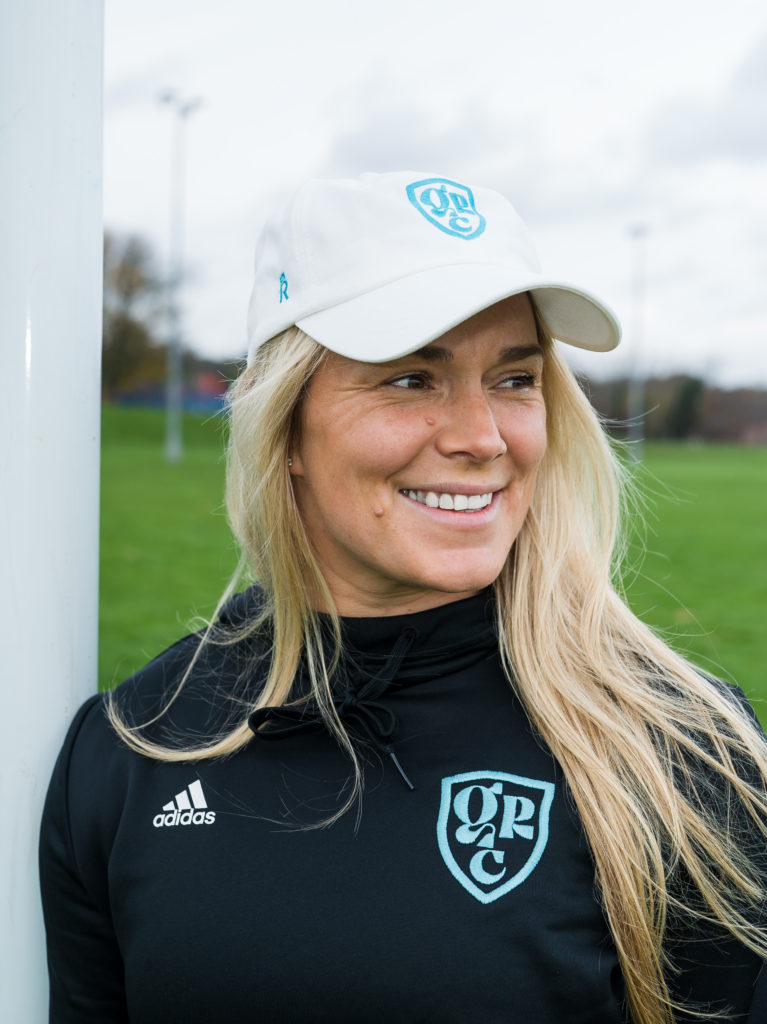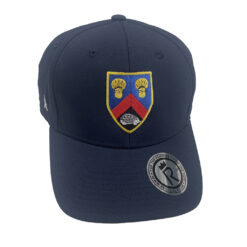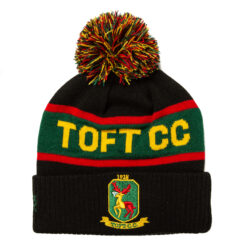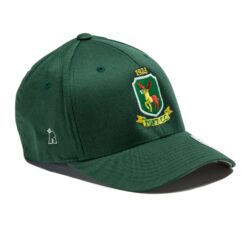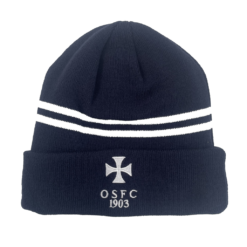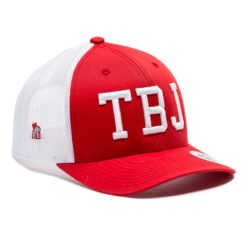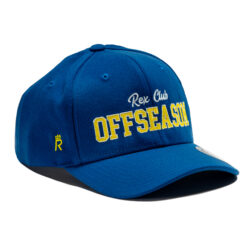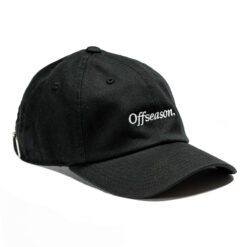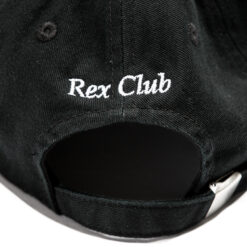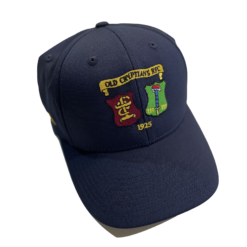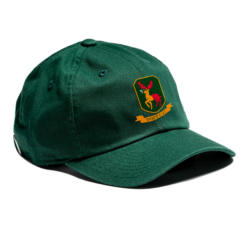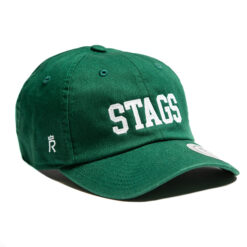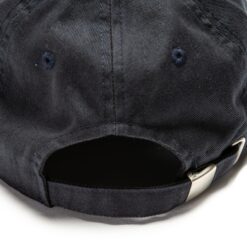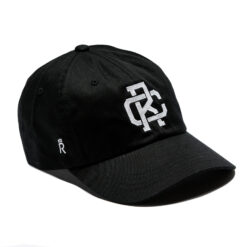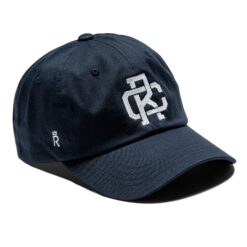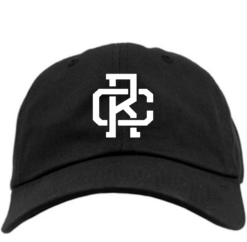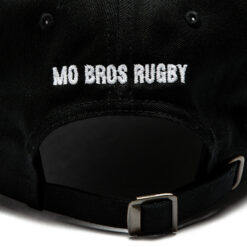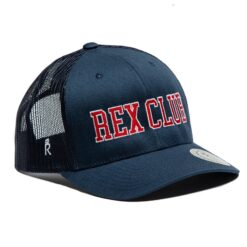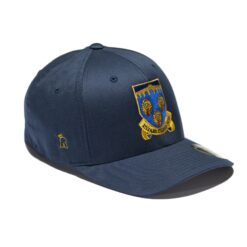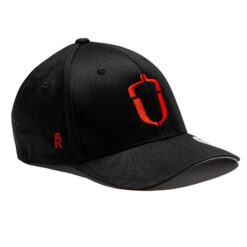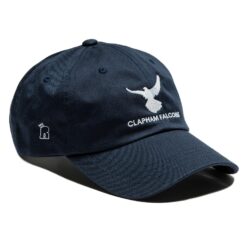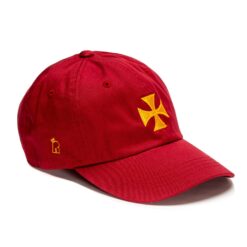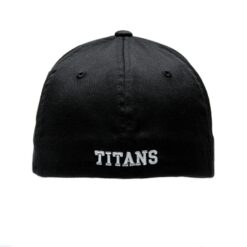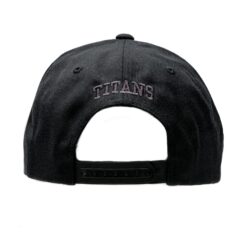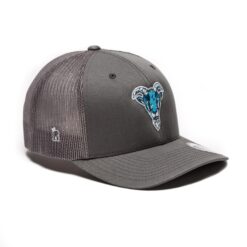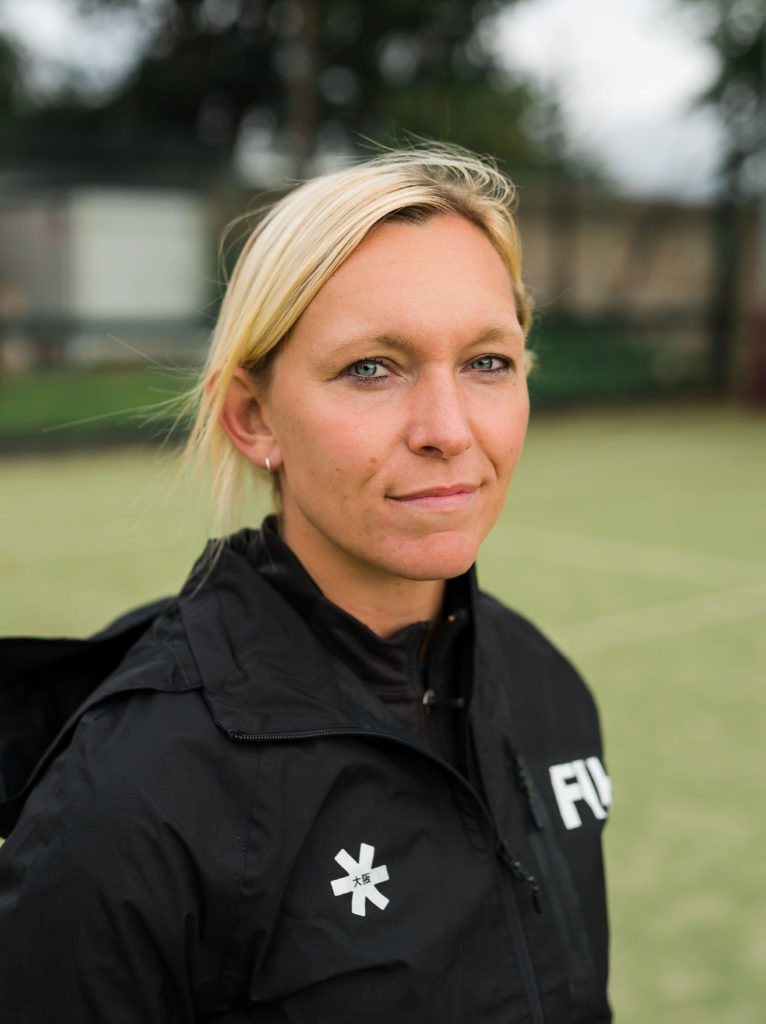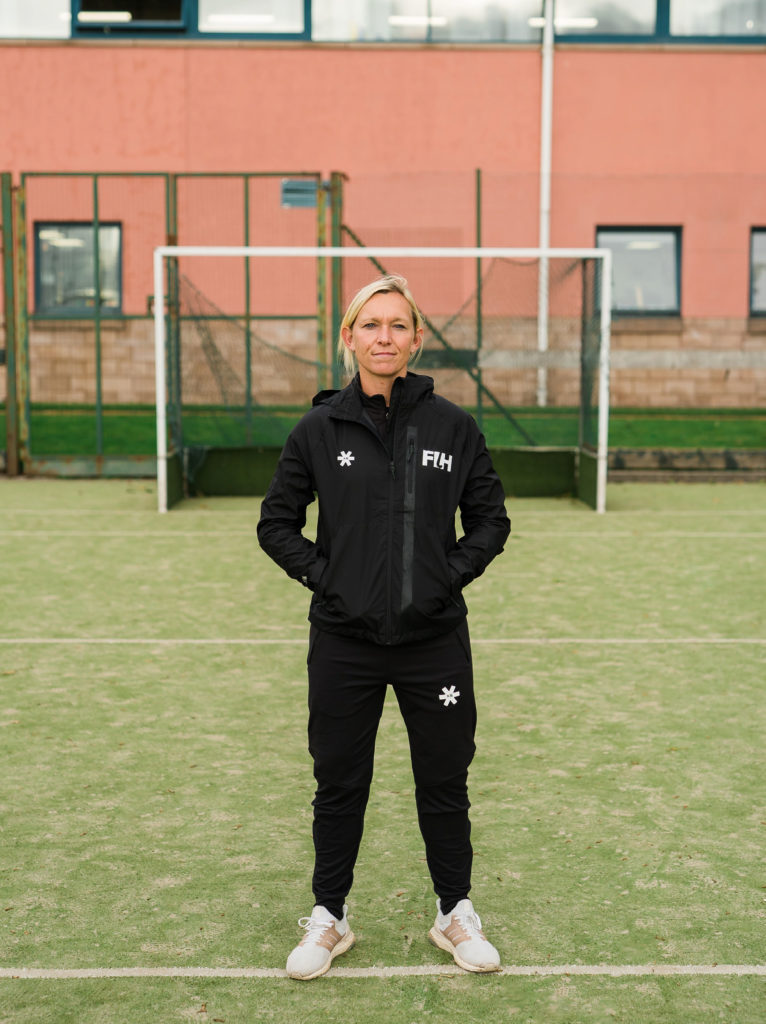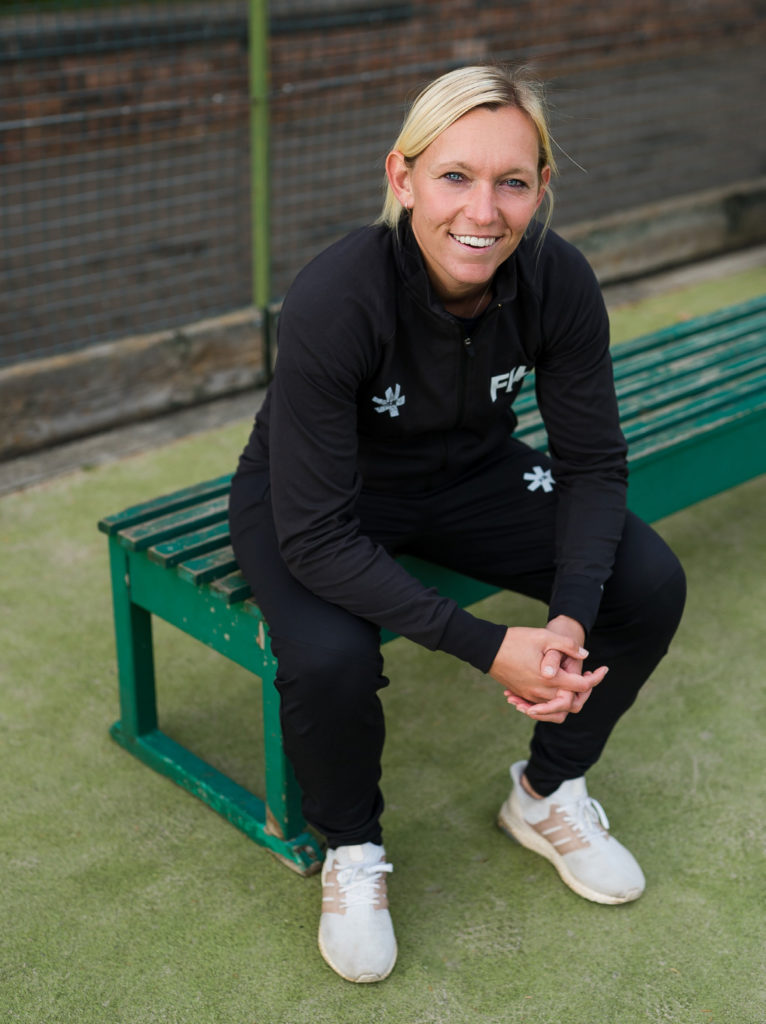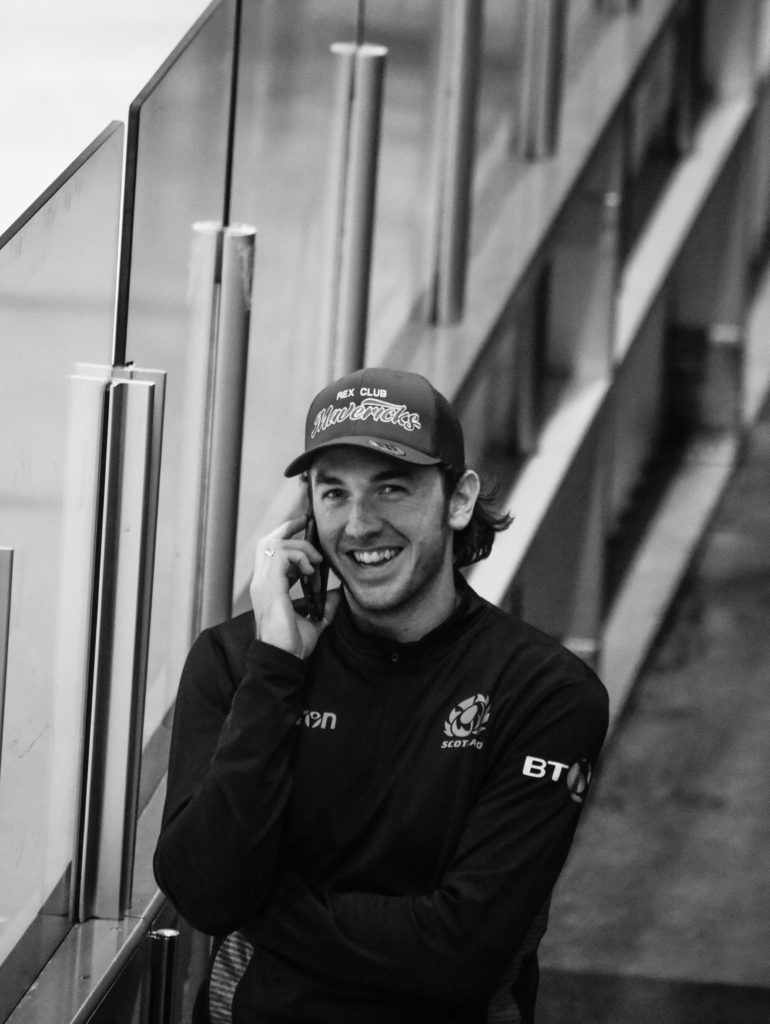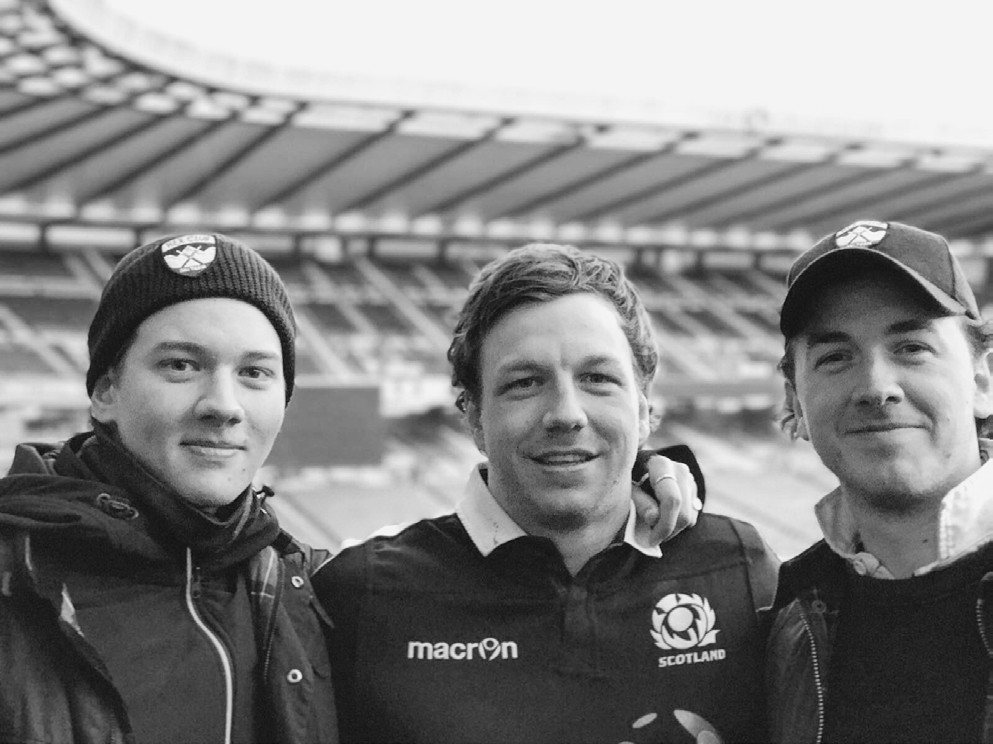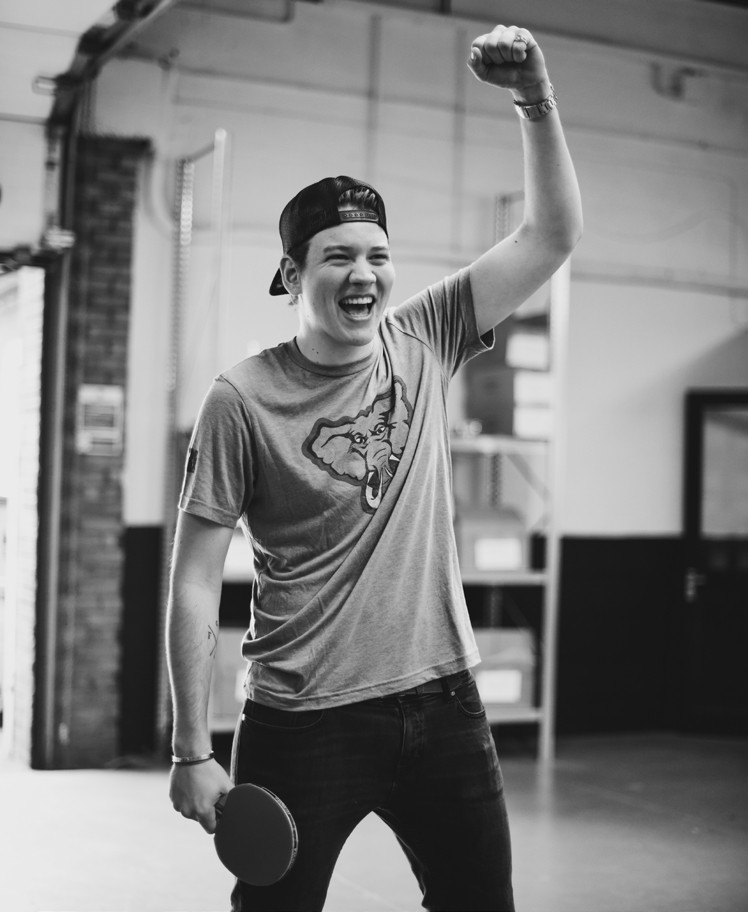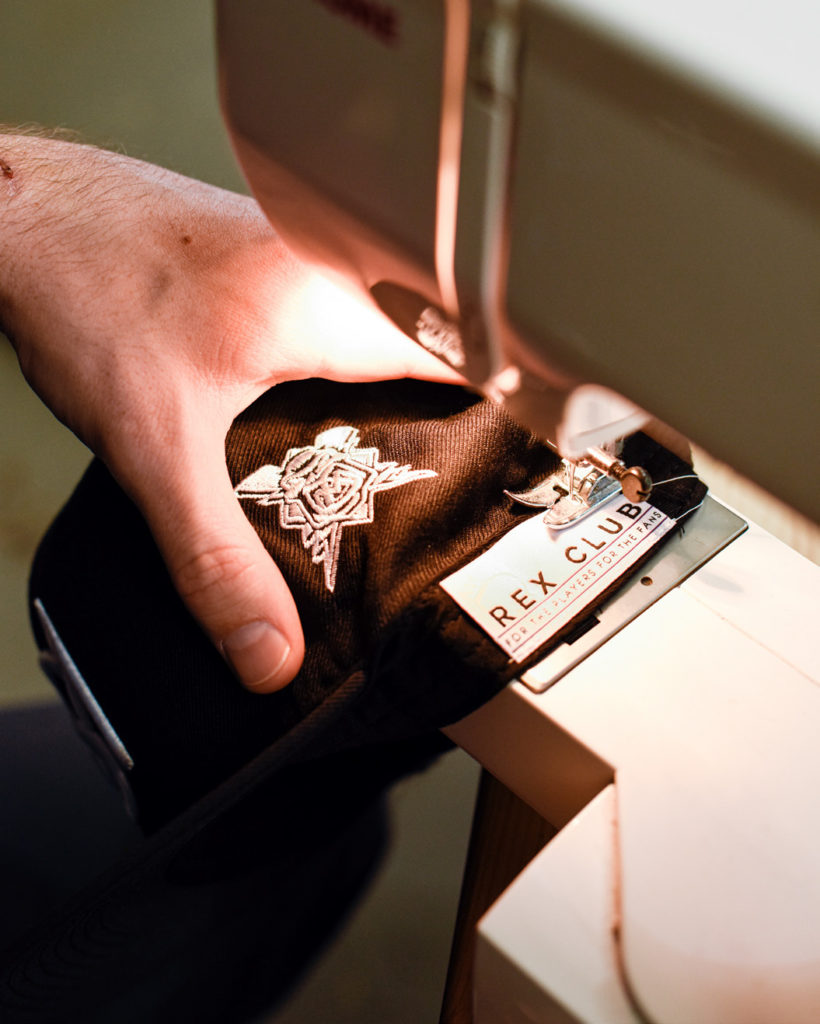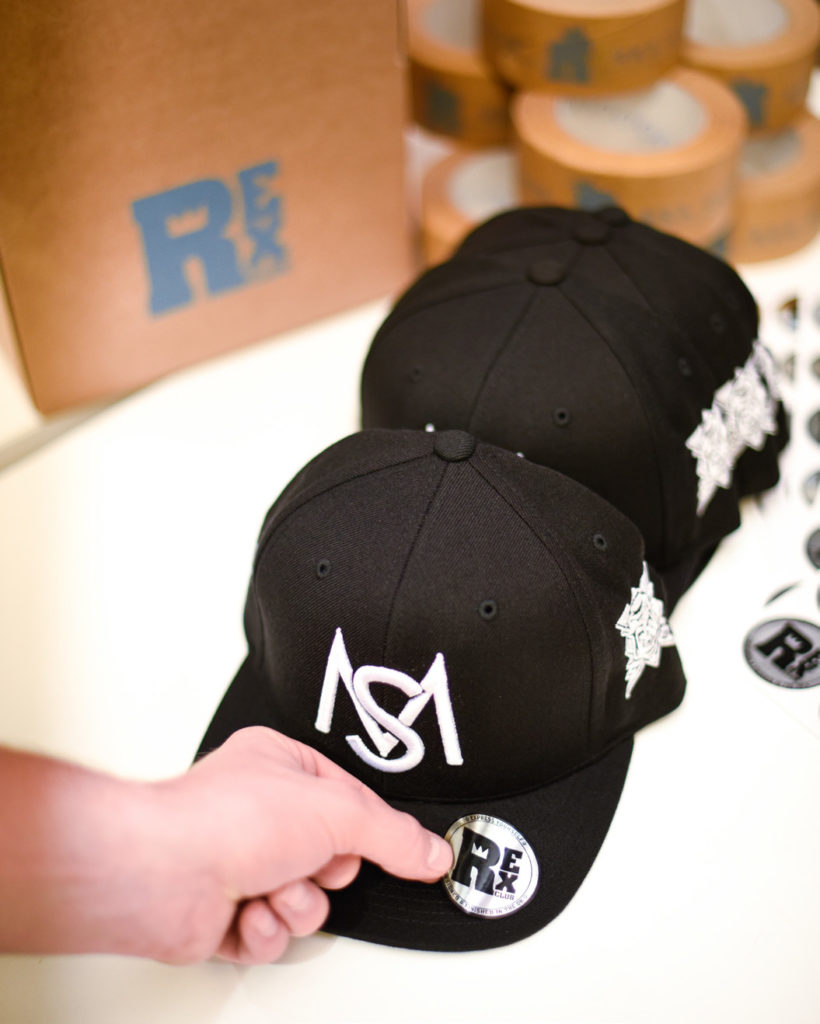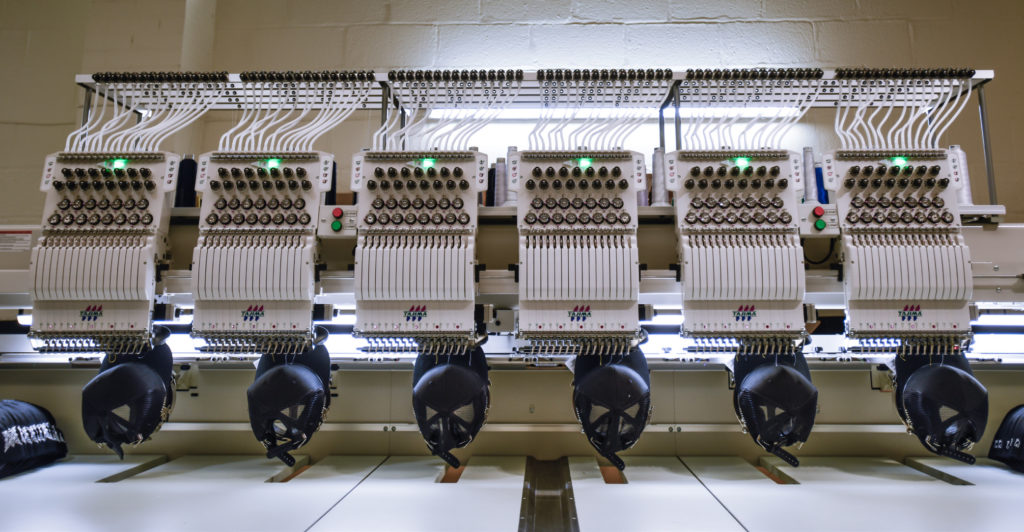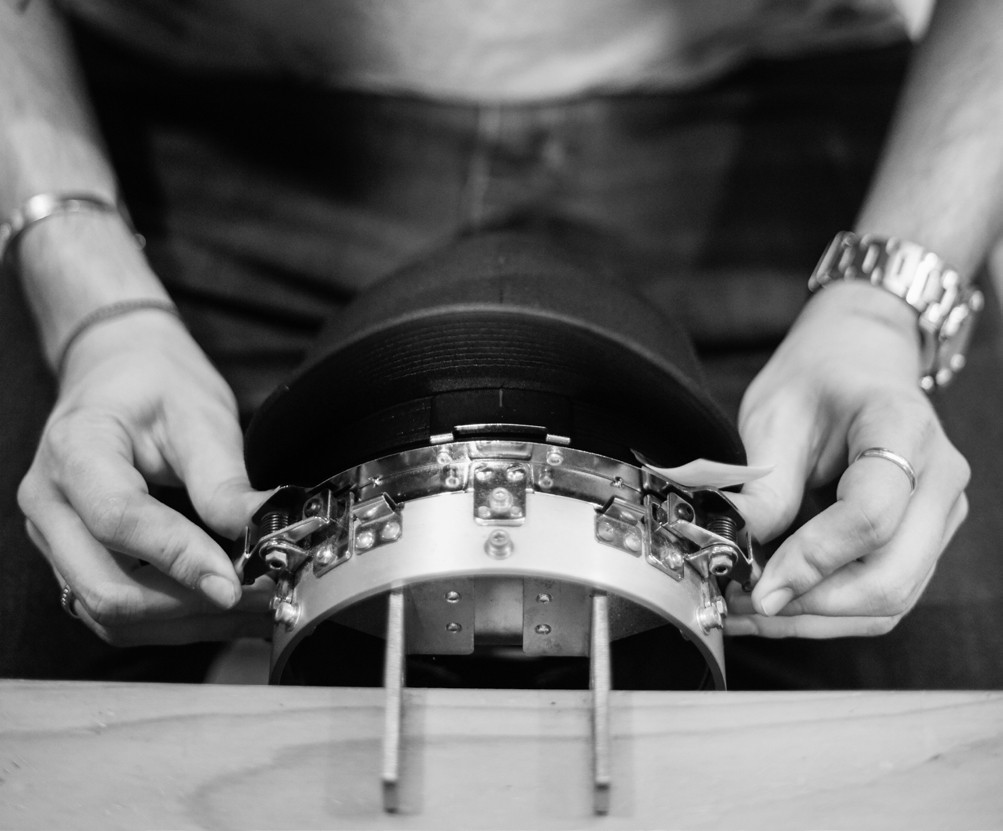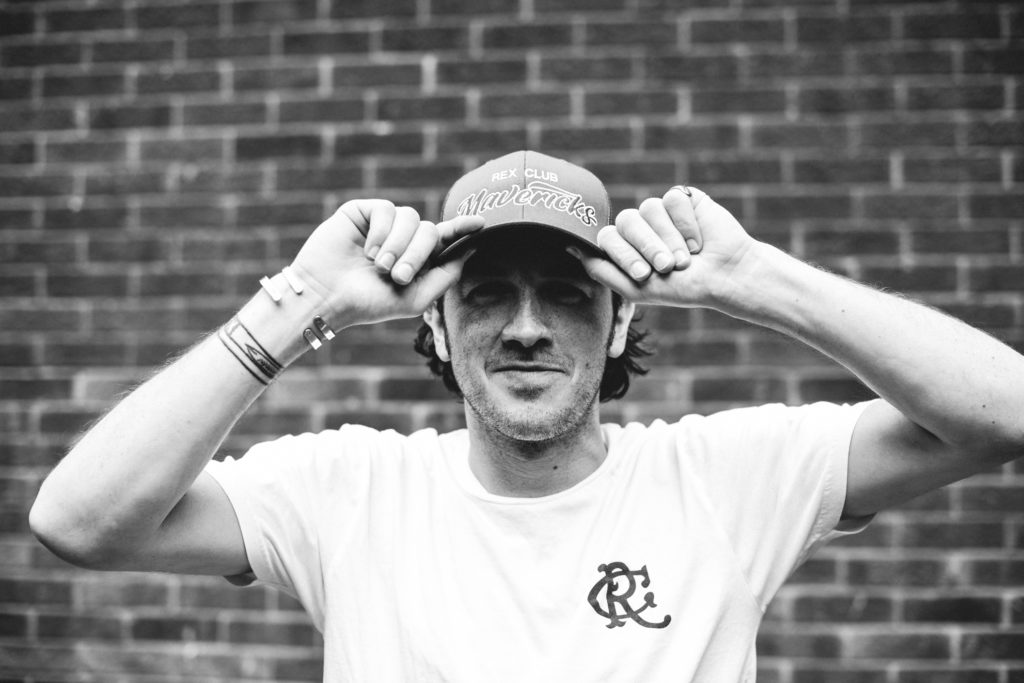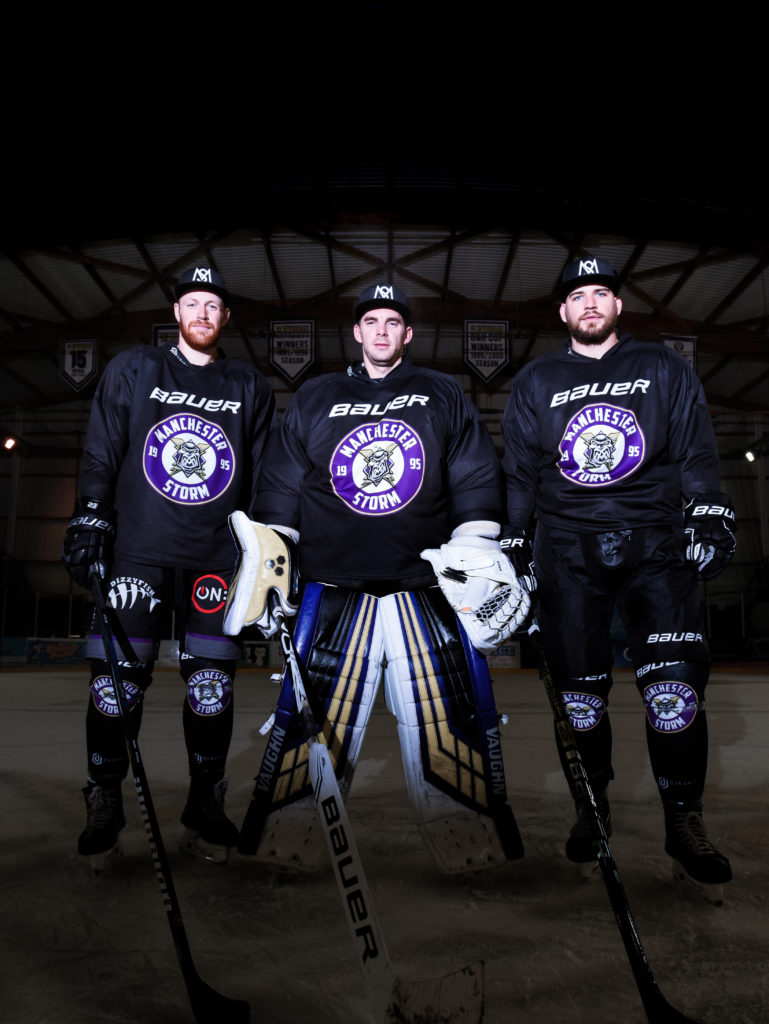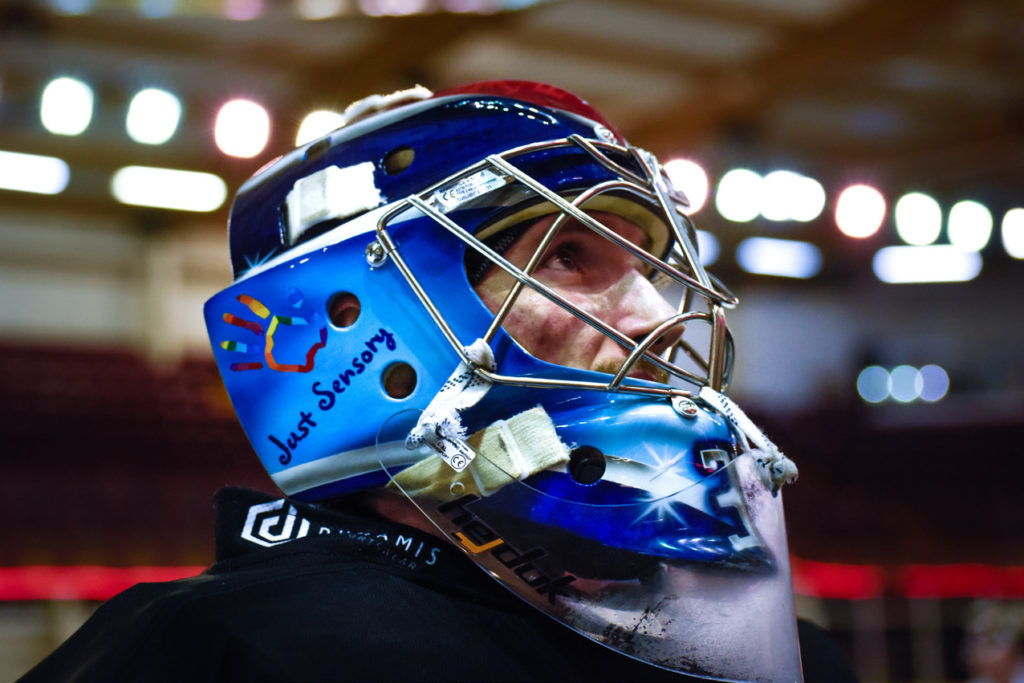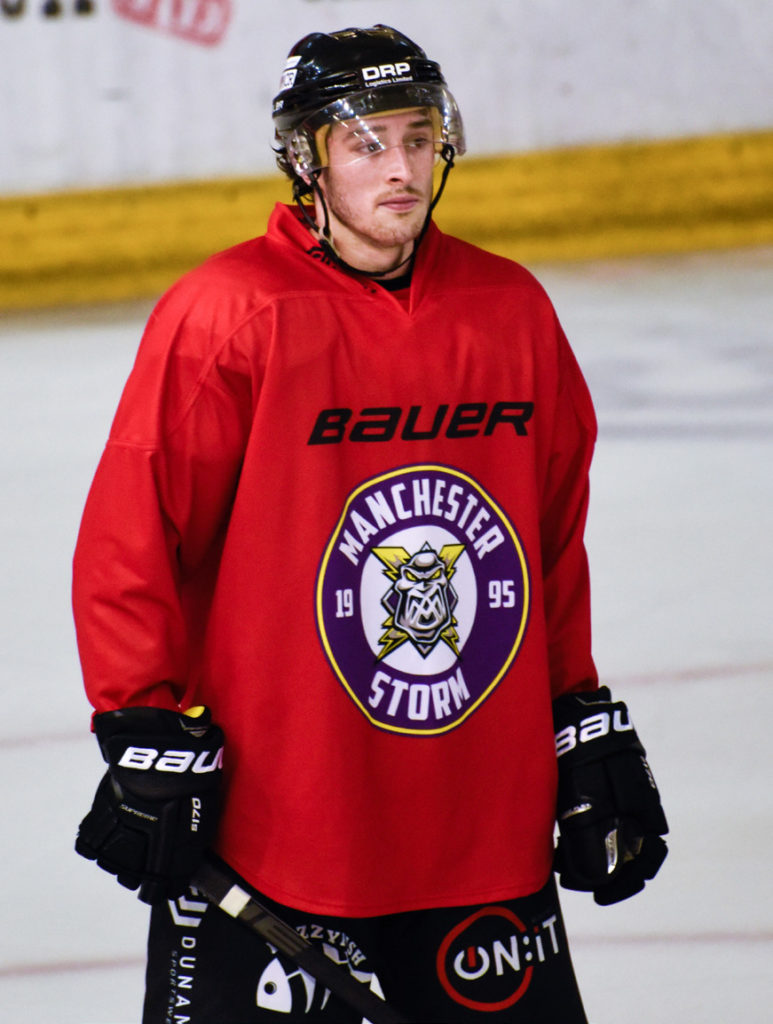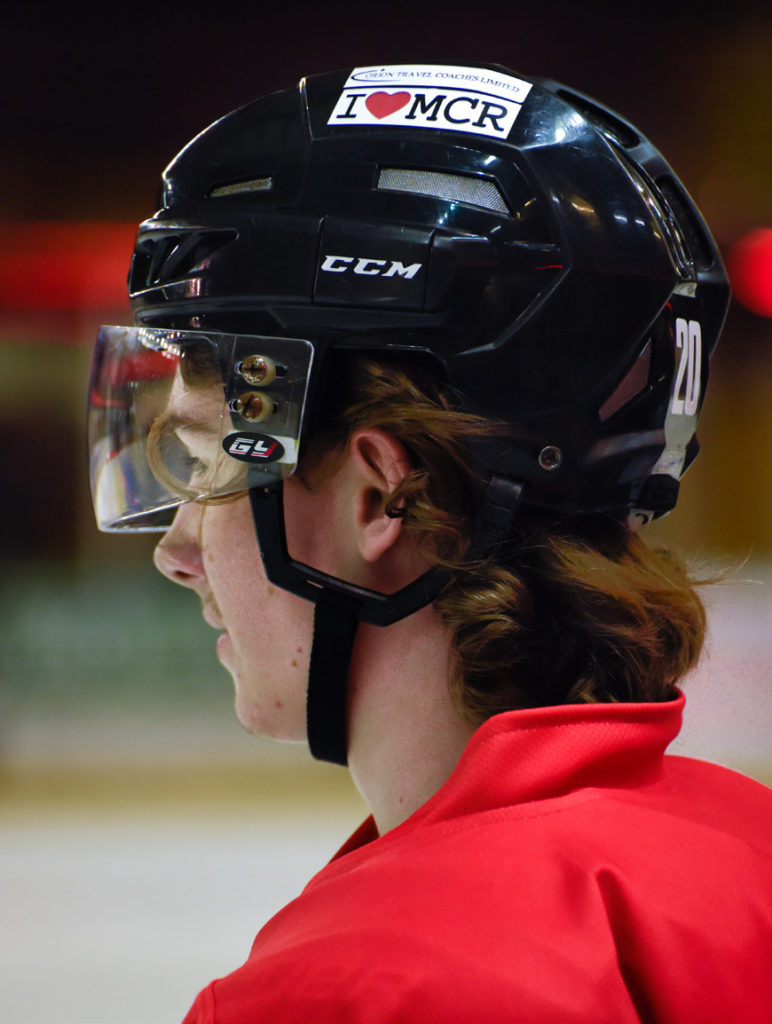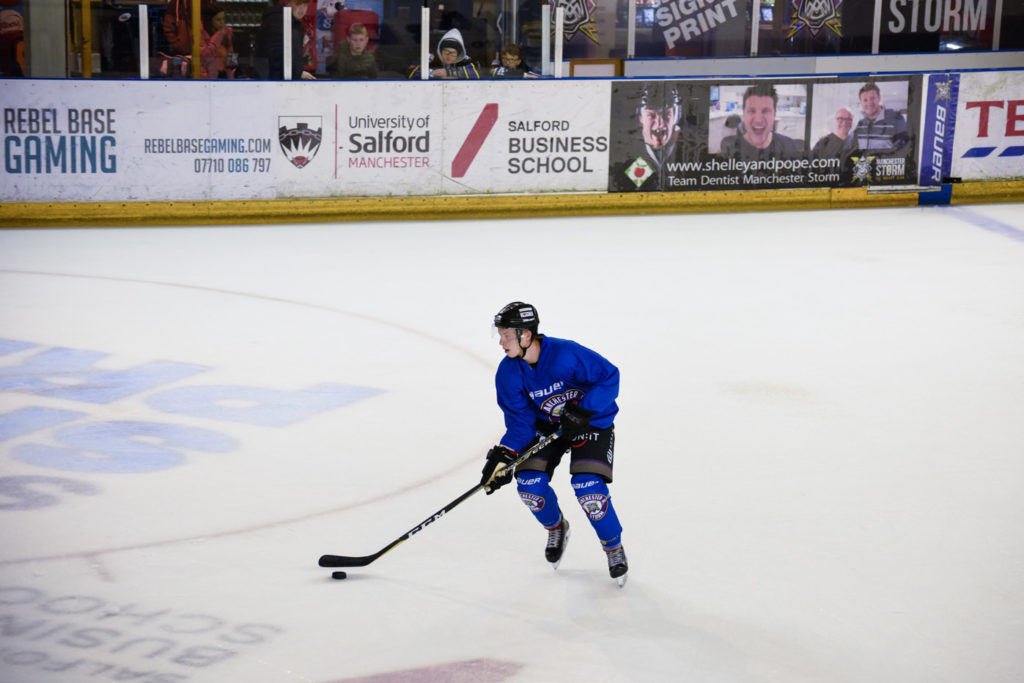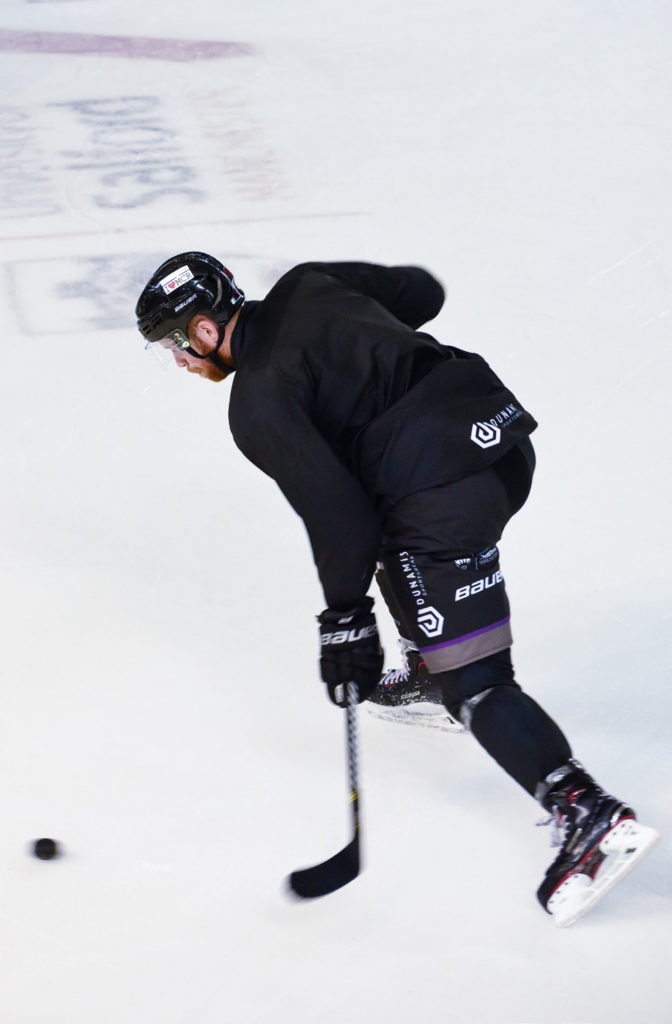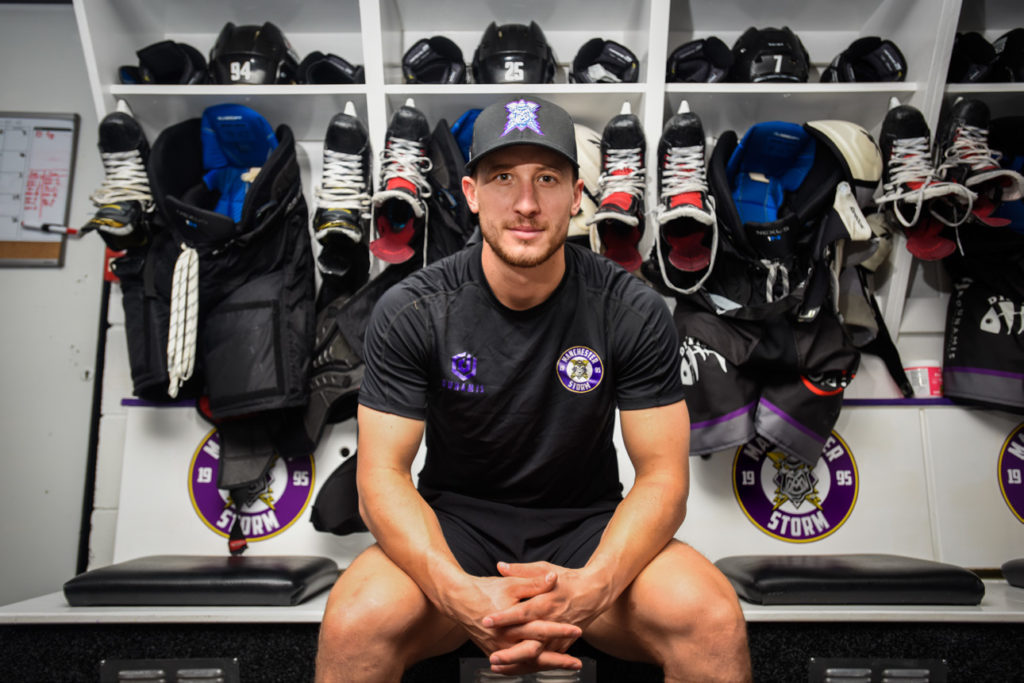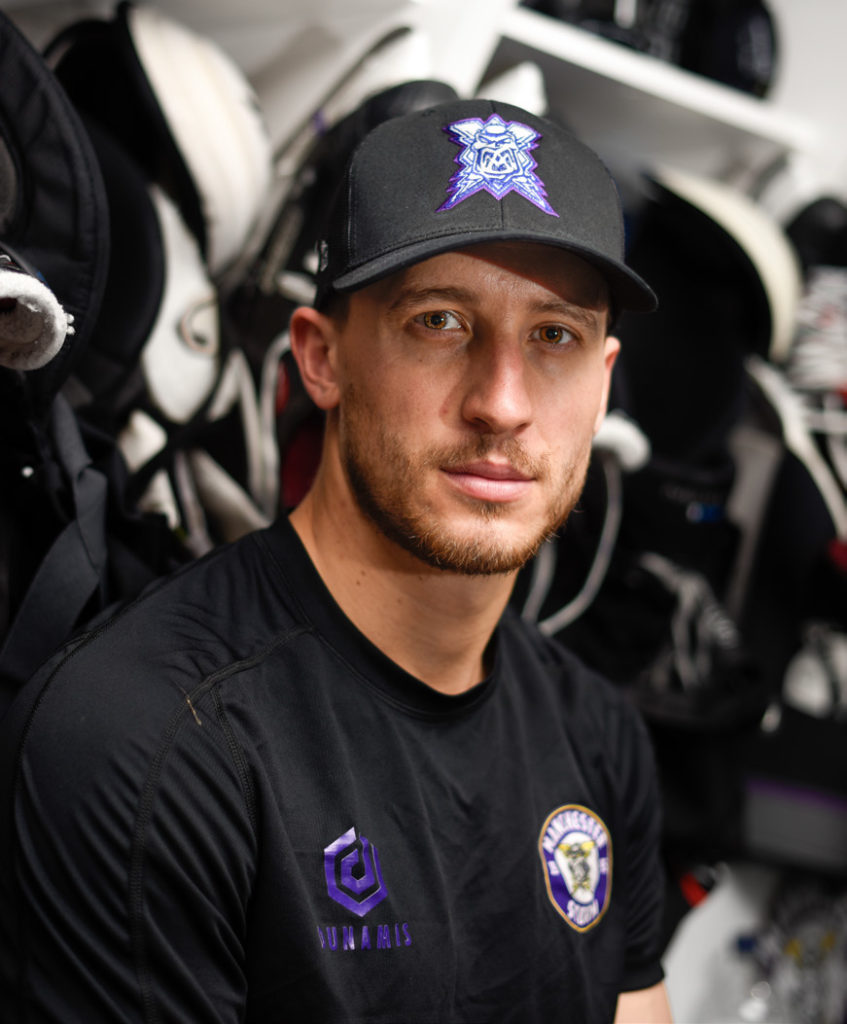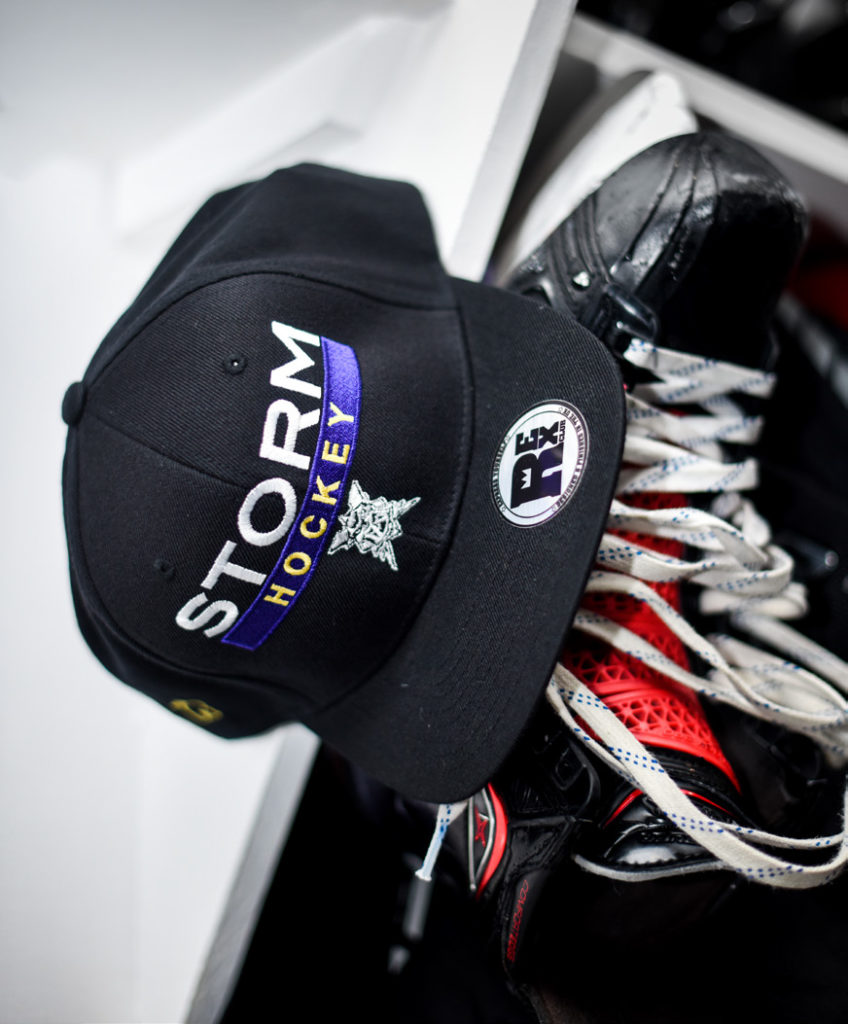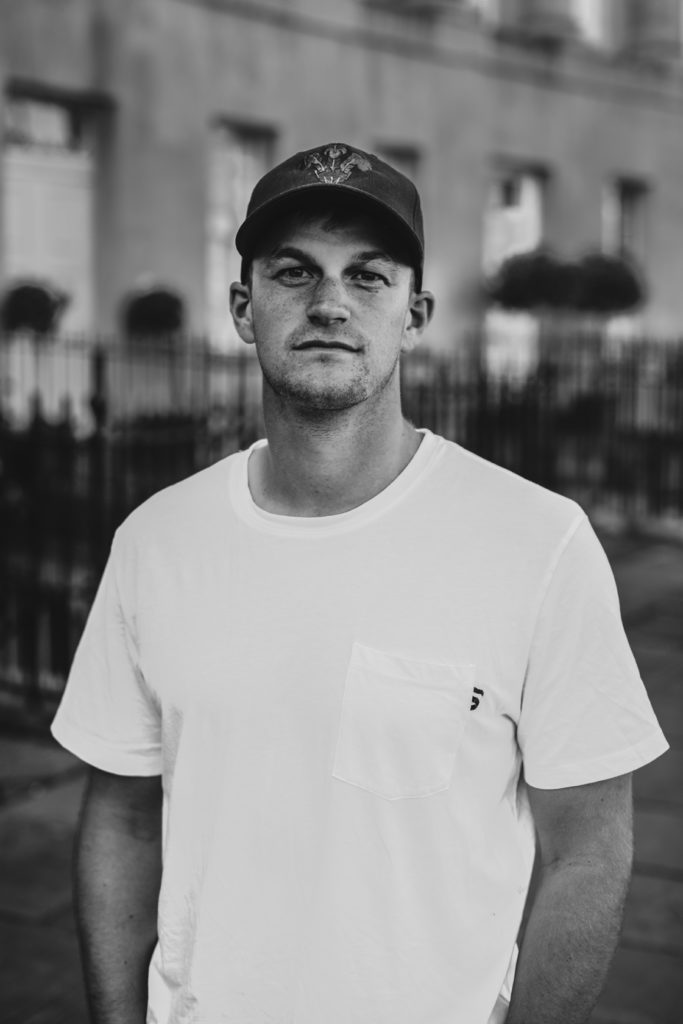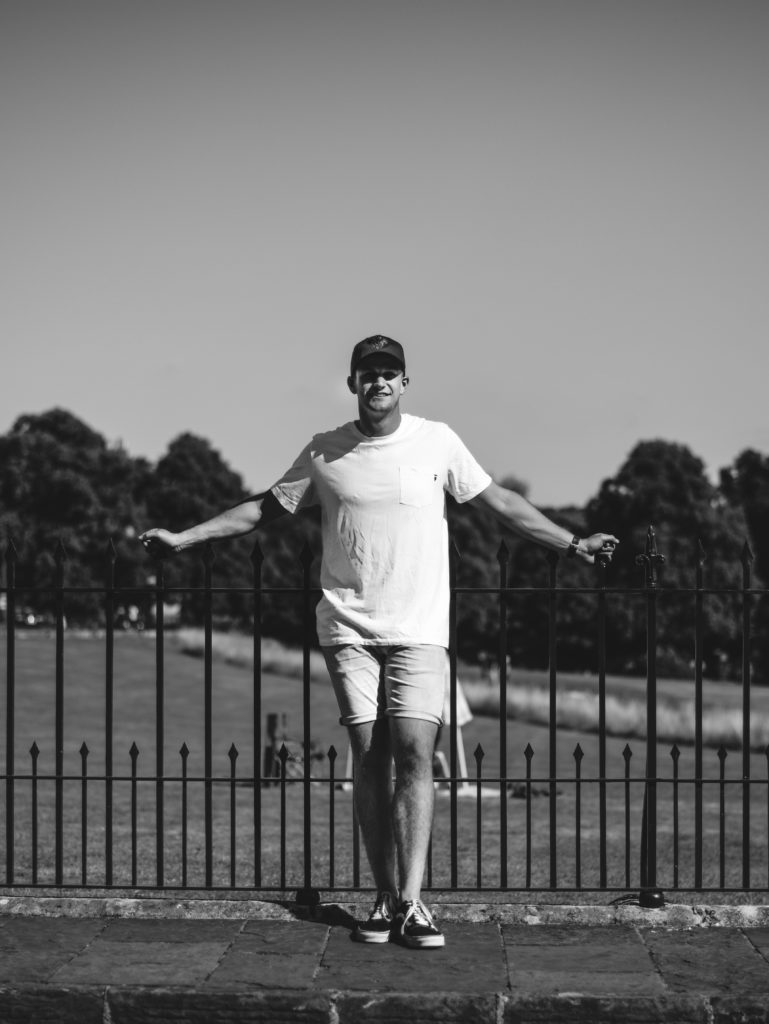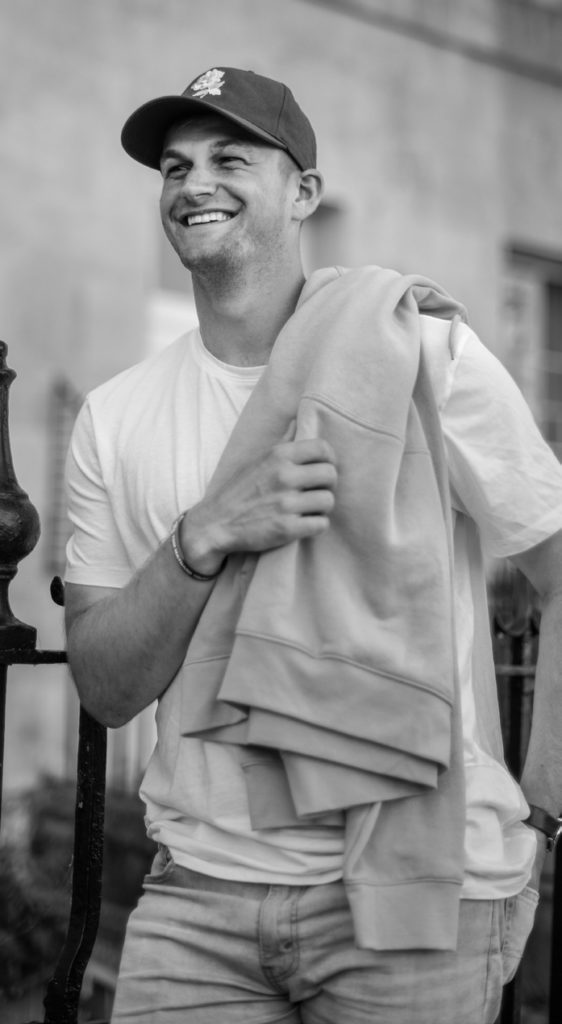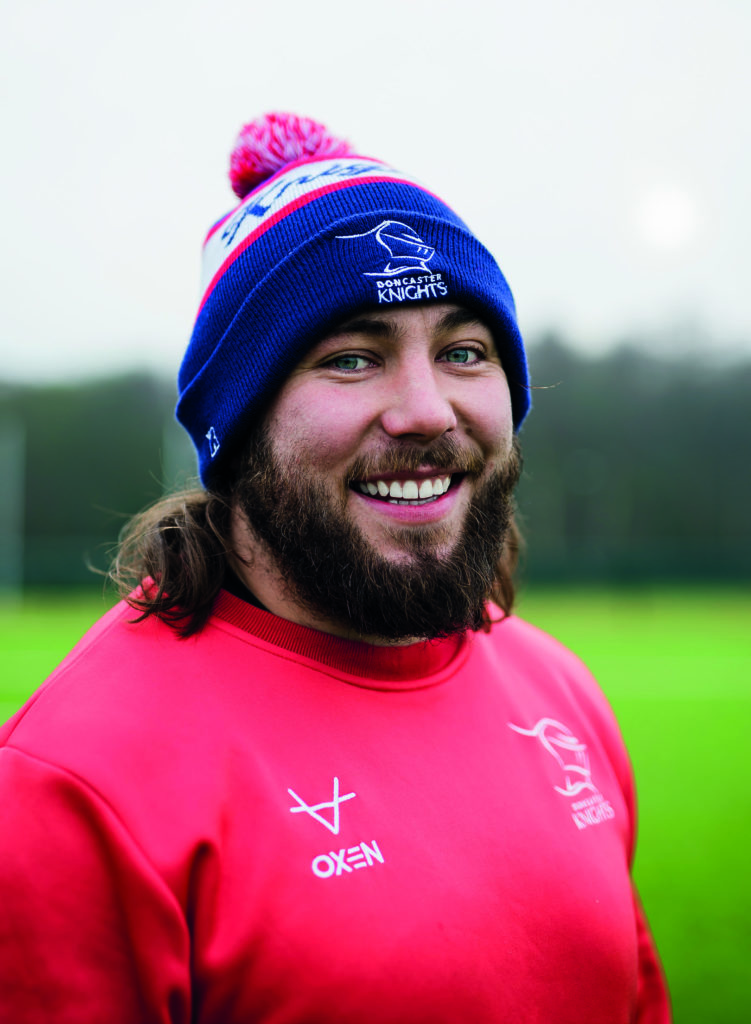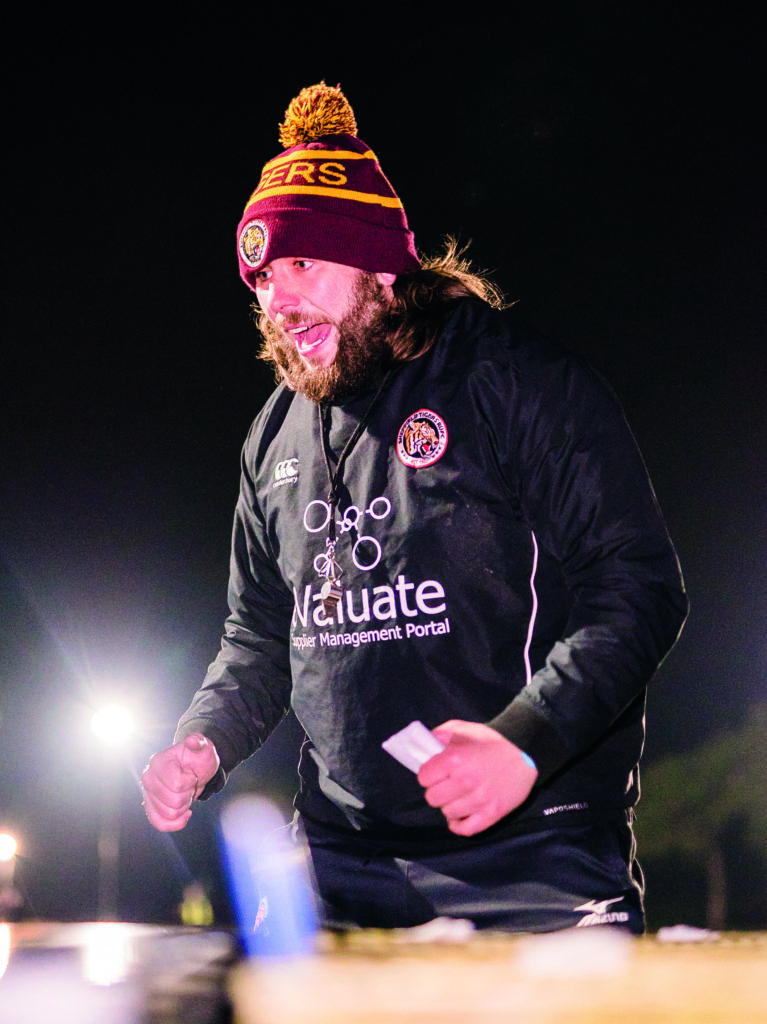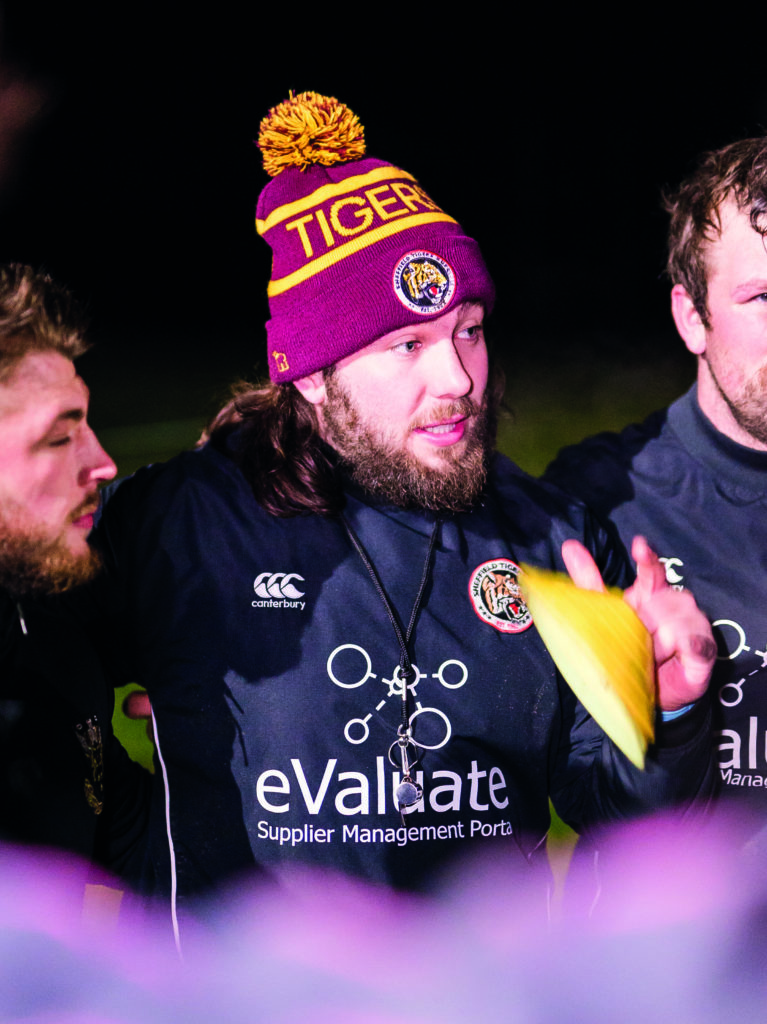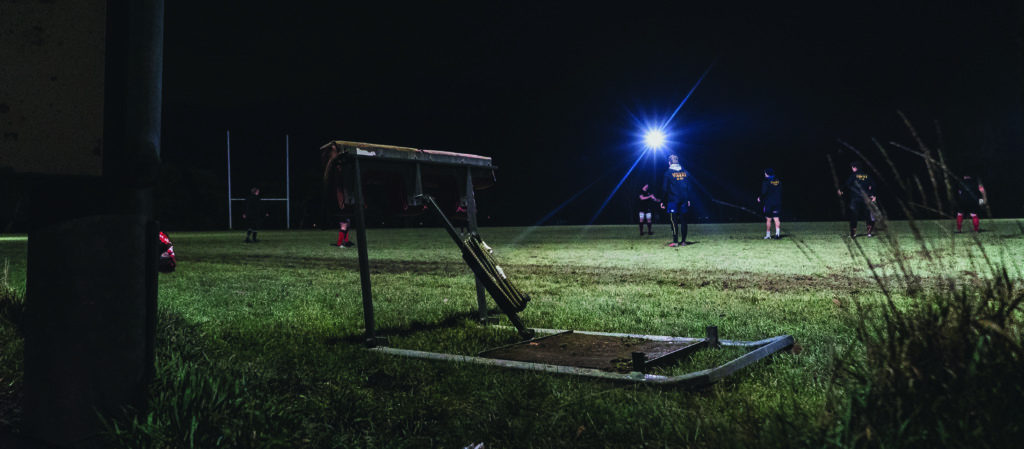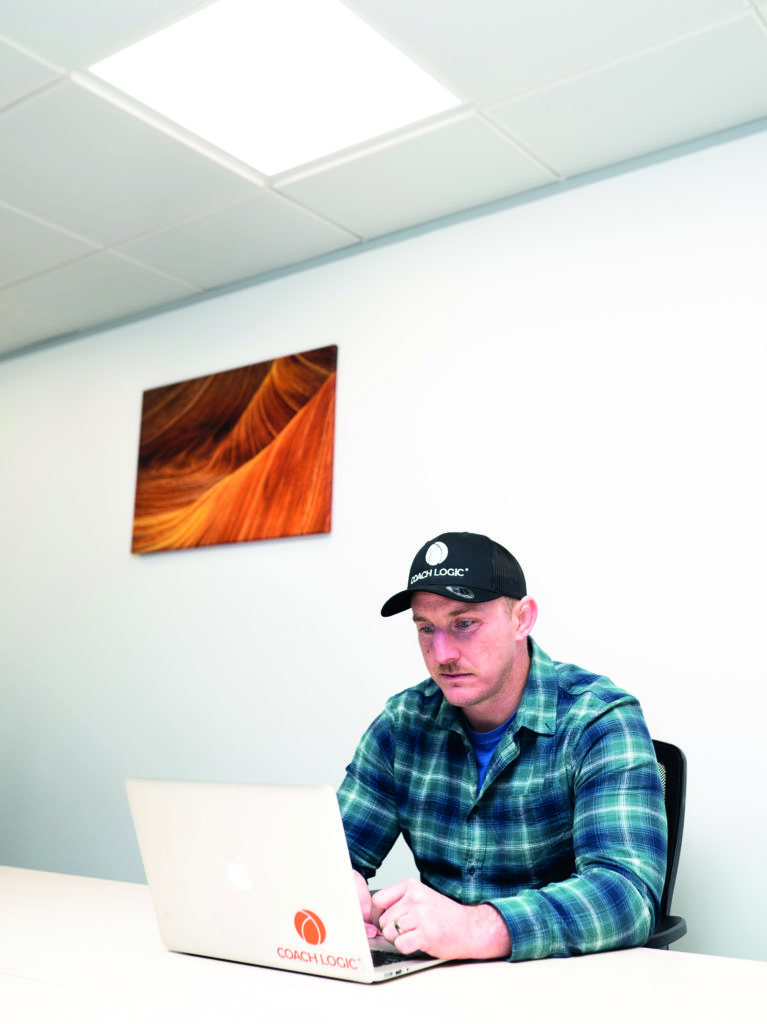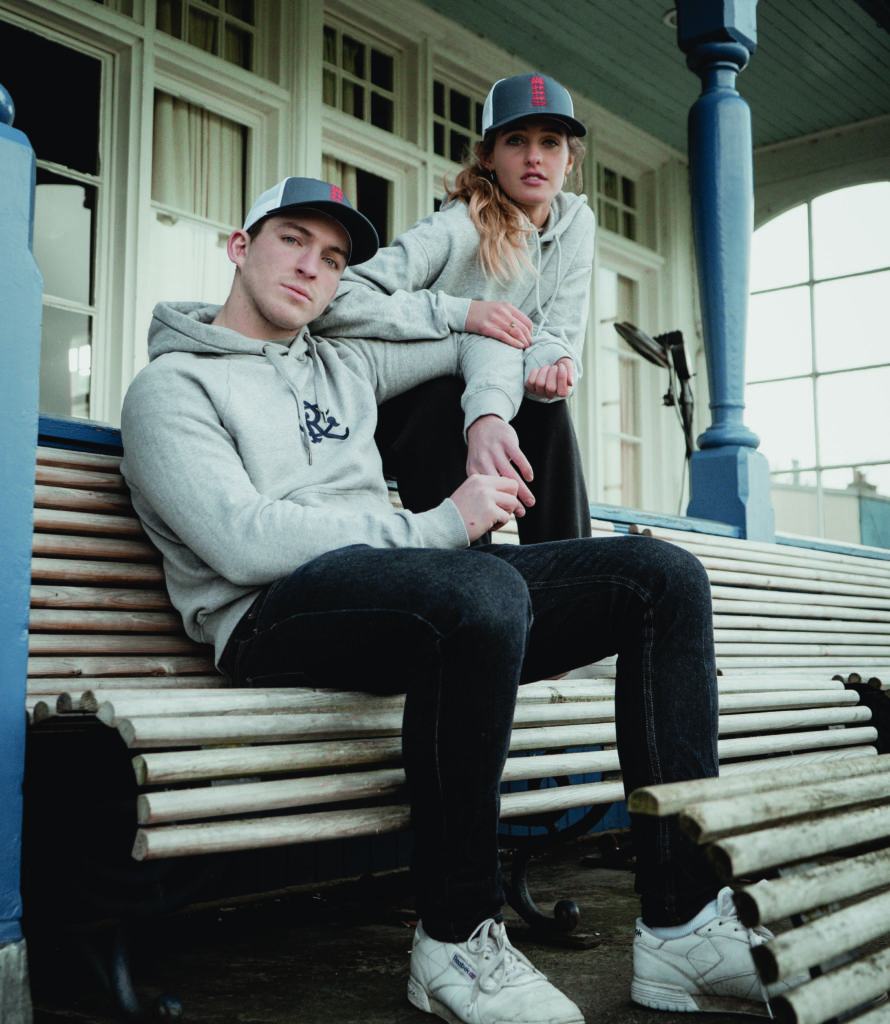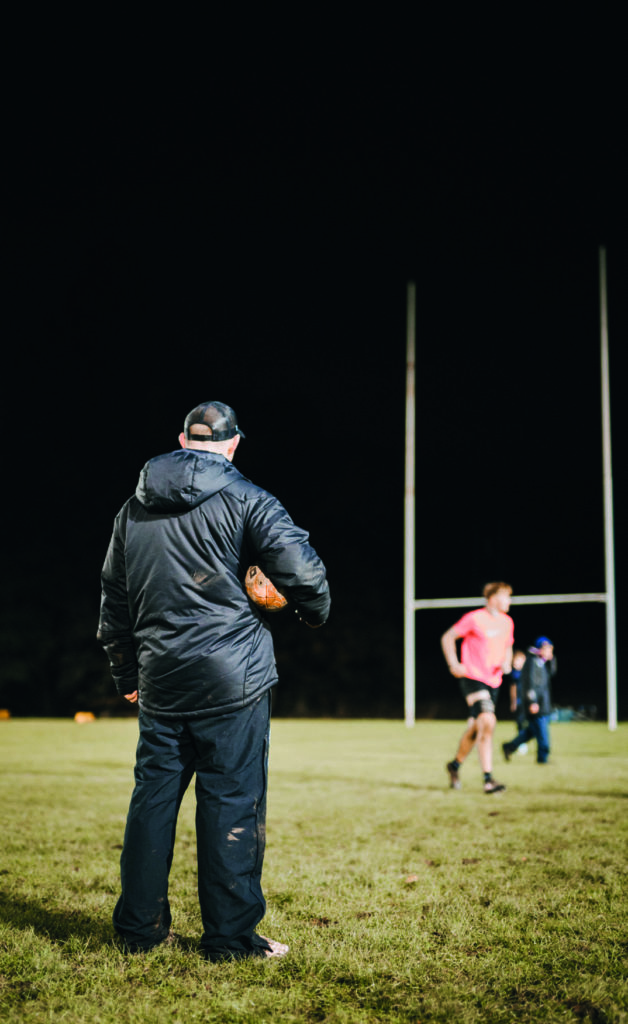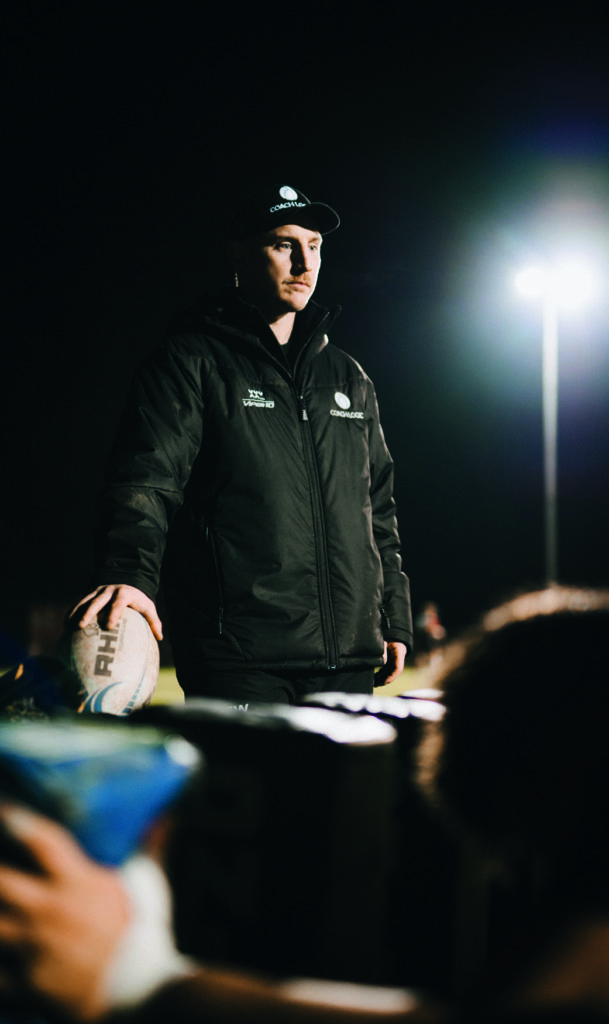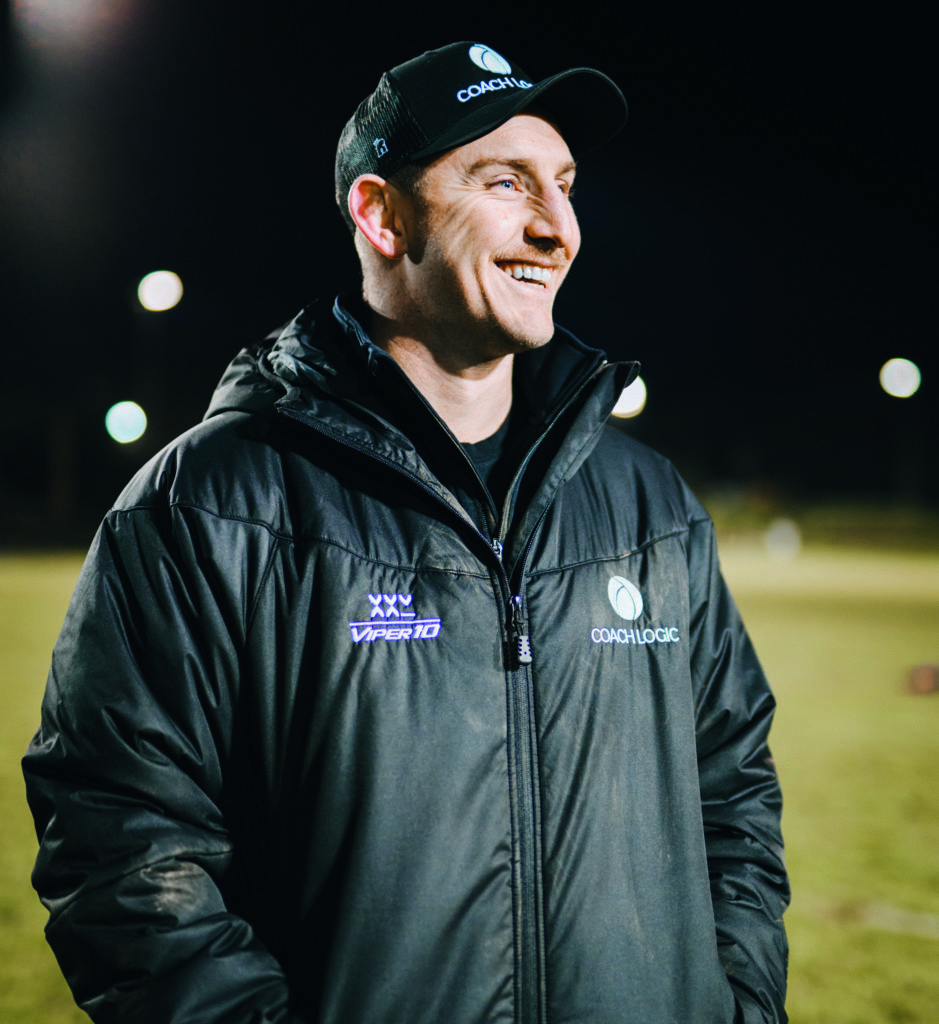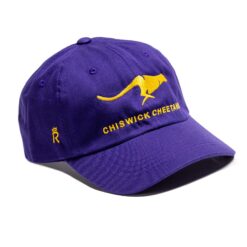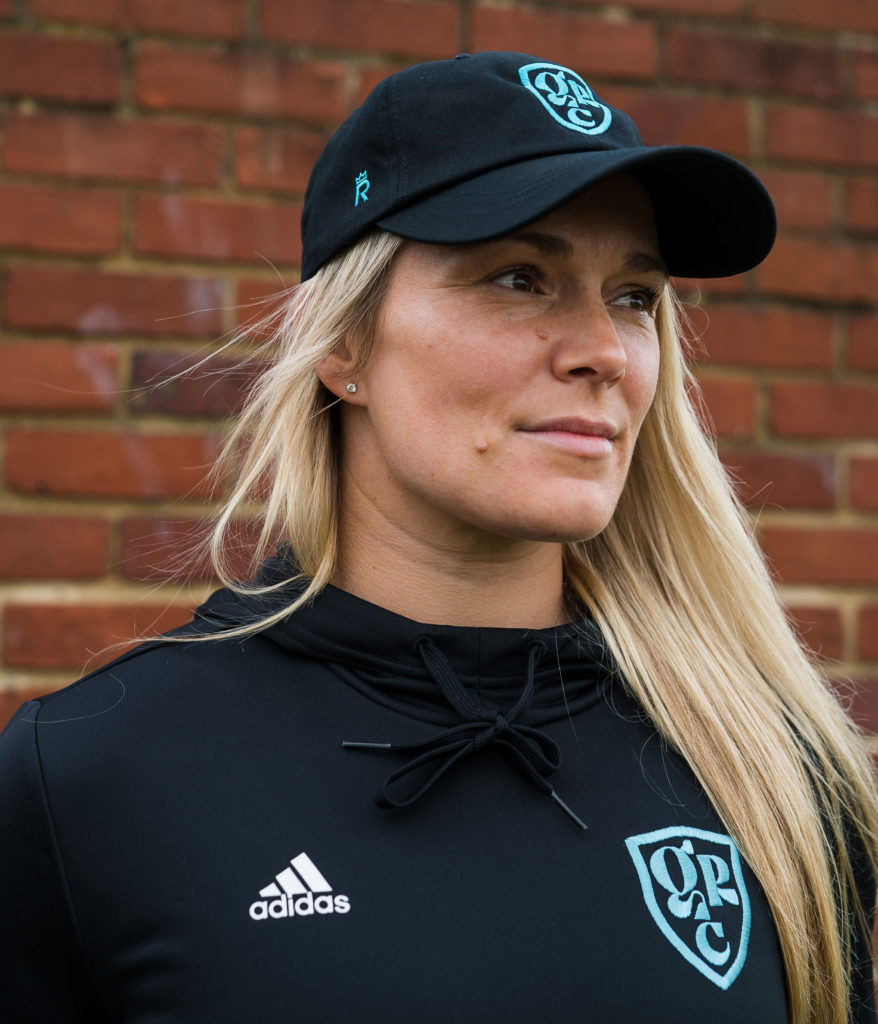
THE GIRLS
RUGBY CLUB
written by Naomi Prakash
RACHAEL BURFORD
photography by Oscar J Ryan
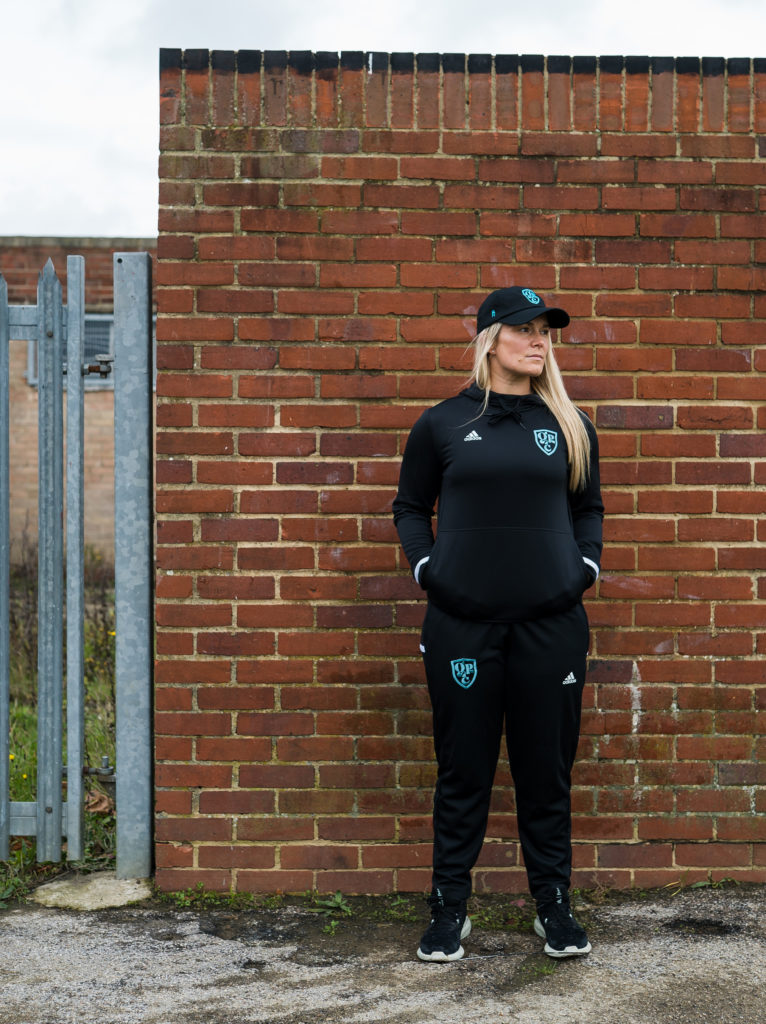
“Never allow someone else to dictate what you can and can’t do. It’s easy to say, but you need to believe in yourself. It helps to find people who have been in positions that you relate to, and who you’re inspired by. Having an idol or mentor, whether it’s a celebrity or local coach, can be really great for your confidence and self-belief.”
Rachael Burford started playing rugby aged six, and rapidly ascended through the ranks before reaching the world stage. She has now represented England at numerous World Cups, most recently in 2017, and has numerous accolades to her name, including the International Rugby Players’ Association merit award. She set up the Burford Academy to provide a series of camps for young female players to meet new friends and learn new skills through rugby, and is now working towards global expansion through her new venture, the Girls Rugby Club.
Local clubs usually have mixed teams until the age of twelve, but girls often need to transfer clubs or quit the sport altogether when the teams separate. Rachael has always been passionate about creating a welcoming, stimulating and fun environment for girls to develop their rugby skills. The Burford Academy, and now the Girls Rugby Club, aim to inspire and educate girls both on and off the pitch. Through a variety of activities, both rugby-based and not, the girls who attend can expect to build on skills like teamwork, confidence building, goal setting and self analysis. They leave having pushed themselves out of their comfort zone, with new friends and improved self-belief. Rachael knows that not every girl who comes along will want to play rugby for her career, or even continue it as a hobby into adulthood, but strongly believes that the practice instills a solid foundation for all aspects of life: whether that be the pitch or the boardroom. Rachael has a strong network of pro rugby players who are formally educated in a
variety of sports disciplines, including nutrition, strength and conditioning, and recovery. She wants to combine their knowledge and passion with their first- person experiences, to educate and inspire the next generation of rugby players. The Girls Rugby Club is gearing up to be a global presence, with a mission to improve the world of women’s rugby in every respect: from proper fitting women’s kit to media coverage of the top players.
Firstly, we’d love to know how you got here. How did you get involved with rugby?
My playing journey started really early – I actually joined a club at six years old! I was really lucky because my mum, dad and my sister already played, so rugby always seemed normal; we’d be at the club four, five, six times a week, it was just what we did. I played at Medway RFC for ten years. For the first six years, I was just with the boys. At age of twelve, I had to join a girls’ team but fortunately for me, my family made sure there was one available. Finally at sixteen, I joined the women’s team. Even before then, though, I was going along to women’s training and joining in where I could, or simply watching from the sidelines. I also made sure I played alongside my mum and sister whenever I could, because I knew that wouldn’t always be a possibility.
Were you able to bring your developing rugby skills to school?
Rugby didn’t really exist for girls at my school. I remember asking if I could go along to train with the boys, and they’d say “yeah you can, but you can’t really do anything”, even if there were only three or four guys playing at the time.
The school knew about my rugby skills and would jump on my accolades if I got into county or regional matches, but they never actually considered opening a girls’ rugby team. Plus, no one else in my school played rugby, especially any of the girls. It was really misunderstood, I think they all just thought I was really hard because I played!
As a young girl, how did you find playing alongside the boys?
At the beginning, I’d be kicked out onto the wing and not really brought into the team. They wouldn’t pass the ball to me, and I just remember my dad saying, “well just go and get the ball, don’t stand there and wait for it”. I took his advice and just went after it, and slowly but surely, the boys started to respect me and see that I could really play. After that my friendships with them started to blossom, but it did take me really having to push the boundaries to get there. I think a lot of how I am today is because of my experiences like that: I’m very determined and I don’t let anyone tell me that I can’t do something. I was lucky to have my dad to advise me, though. Some parents don’t know the play, so they don’t encourage their daughters just to go over and get stuck in, when really that’s the best thing you can do.
What are the most common misconceptions about girls’ rugby, and how does the club aim to clear them up?
Boys don’t think that girls belong in rugby. It really is an intimidating environment when it’s all boys and just one girl, especially when 90% of the time the coaches are male too. We want to provide a welcoming environment that’s safe but challenging, that’s our aim at the Girls Rugby Club and Burford Academy. Parents have told me their daughters were so excited about attending because they felt comfortable and able to do their own thing without being judged. That’s what it’s all about, making that first step accessible. Then, down the line, those girls become U13 players, and younger kids see them and think “wow, in a couple years I could play on that team!”.
How does this translate into life outside of the rugby pitch?
Rugby, and sports in general, is good preparation for life. It’s just reality that a lot of arenas in the world are male-dominated, from school to business. The great thing about rugby is that it allows you to learn to not just deal with, but thrive in, an environment like that. It allows you to go into those situations later in life and say to yourself, “I know how to handle this – I’ve done it before”.
What is the Girls Rugby Club’s mission?
Girls often have to leave their mixed team at twelve years old to find a girls’ team elsewhere, but if you play rugby you’ll know that your team and club are really special to you. This makes going somewhere new really daunting and unappealing. The original idea of the Girls Rugby Club was just
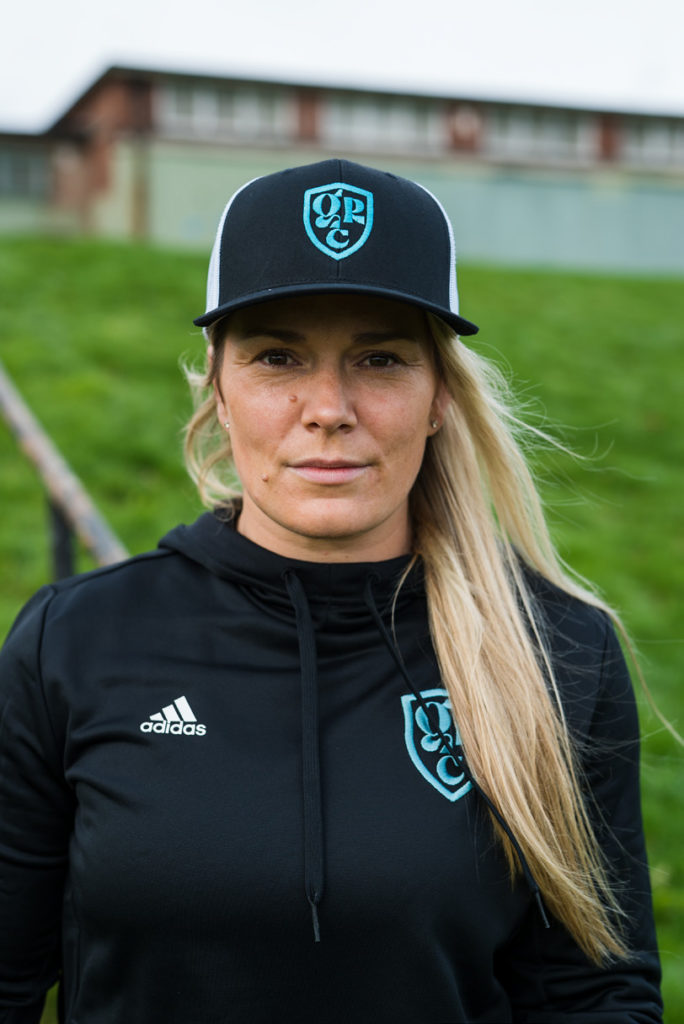
I would just want to crawl up into a ball, and now I know that’s really the worst thing you can do. Looking after yourself helps, and that includes exercise. I’ve become aware of how important it is to understand each day of your cycle: some weeks you’re stronger and will smash it in the gym; others you’re more prone to injury. My favourite app at the moment is FitrWoman, it’s a period tracking app that lets you know how you should be training. It helps with everything from nutrition torecovery,andithasagreatfeaturethatallows coaches to access period dates with permission. Your cycle interferes with your play so you should make your coach aware, but obviously that can be really awkward and intimidating for a girl, or even a grown woman! This automises that annoying procedure and helps your team play at full potential.
How do you foresee the future of women’s rugby, especially in grassroots levels? Do you think there is enough momentum to assume some significant growth?
For sure. It’s one of the fastest growing sports, and England is in a good place right now. We have a strong domestic league which allows our international game to be really great. In order to continue the growth, we need to nurture our domestic teams, everything else stems from there. I’m talking about improving facilities, coaching, playing opportunities, training opportunities… It all adds up and boosts performance at every level.
to connect girls from different locations, so they can join new neighbouring clubs with the knowledge that they’ve made some friends there already.
Now, we’re expanding to tackle the stigma and negative comments that go on in the women’s space. We want to educate people. Every plan I’ve ever followed – nutrition, supplements, training – they were always based on men, so really they might not work for me at all. So we started planning this online haven, where you can find tonnes of resources about managing your menstrual cycle, mental wellbeing, training, rugby skills, everything! Our aim is to share this globally, and create and distribute fresh initiatives, all in order to really grow the game.
The issue of body image is especially prevalent in young girls: how does rugby help with that?
Rugby is so unique because it doesn’t matter what shape or size you are, there will be a place for you. It’s one of the few sports where diversity is ideal: you need all types on a team. Often, it’s the things that you’ve previously seen as your flaws that become your greatest strengths in rugby. It can be quite weird to get your head around at first, but it allows you to gain an immense amount of acceptance. It’s truly a celebration of all bodies.
Another aspect of managing a woman’s body is dealing with a menstrual cycle and everything that comes with it. How do you think that cycles impact a girl’s training, and what can we do to improve our handling of that?
I was very young when mine started, and at the time my mum was actually away on a rugby tour – talk about irony! I had no one to talk to, and really few resources to help
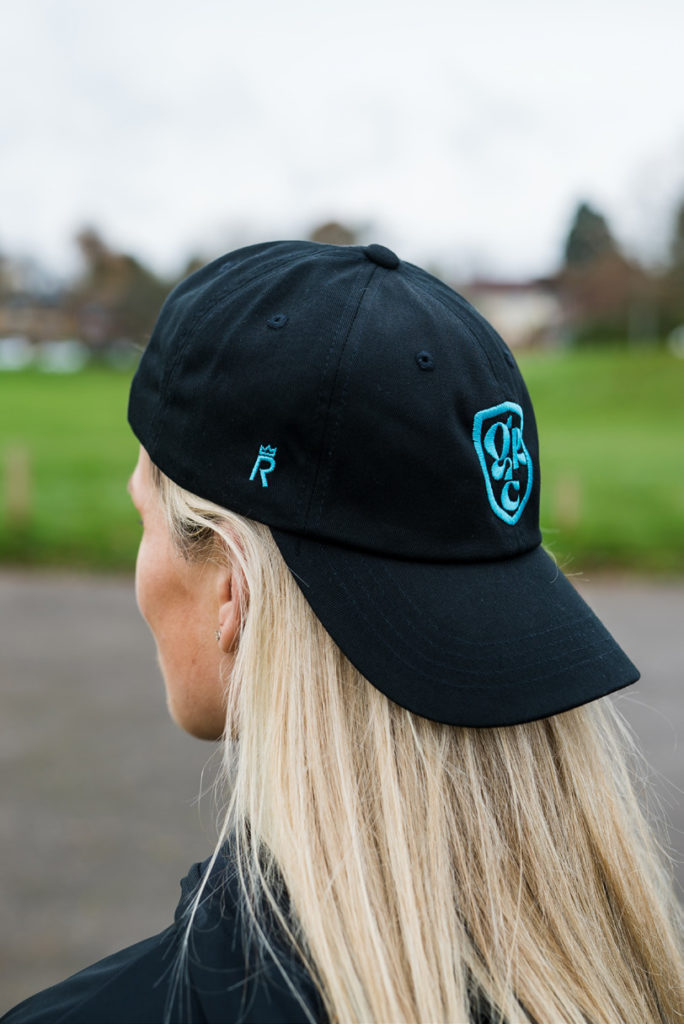
What can we do to normalise girls who play rugby, or other sports/activities that are seen as more masculine?
We need more media coverage. If you can’t see any female rugby players, then how can you aspire to be one? I was lucky enough to see my mum and sister play, and I’m not sure if I would’ve been able to continue playing the game if I didn’t have powerful women to look up to. It’s not just players, though. We should be seeing documentaries, and learning about female coaches, referees, and heads of department too. If you do media coverage right, then you can create icons. Just take Serena Williams or Jessica Ennis Hill: they’re not known as ‘female sports players’, they’re simply ‘sports superstars’. The fact that they’re women isn’t the leading headline, the focus is on their skill. If we continue pushing for coverage like that, then that inspiration will travel through the whole industry, including at grassroots level.
Do you have any advice for young girls, rugby players or not, who are struggling with being stereotyped a certain way?
Never allow someone else to dictate what you can and can’t do. It’s easy to say, but you need to believe in yourself. It helps to find people who have been in positions that you relate to, and who you’re inspired by. Having an idol or mentor, whether it’s a celebrity or local coach, can be really great for your confidence and self-belief.
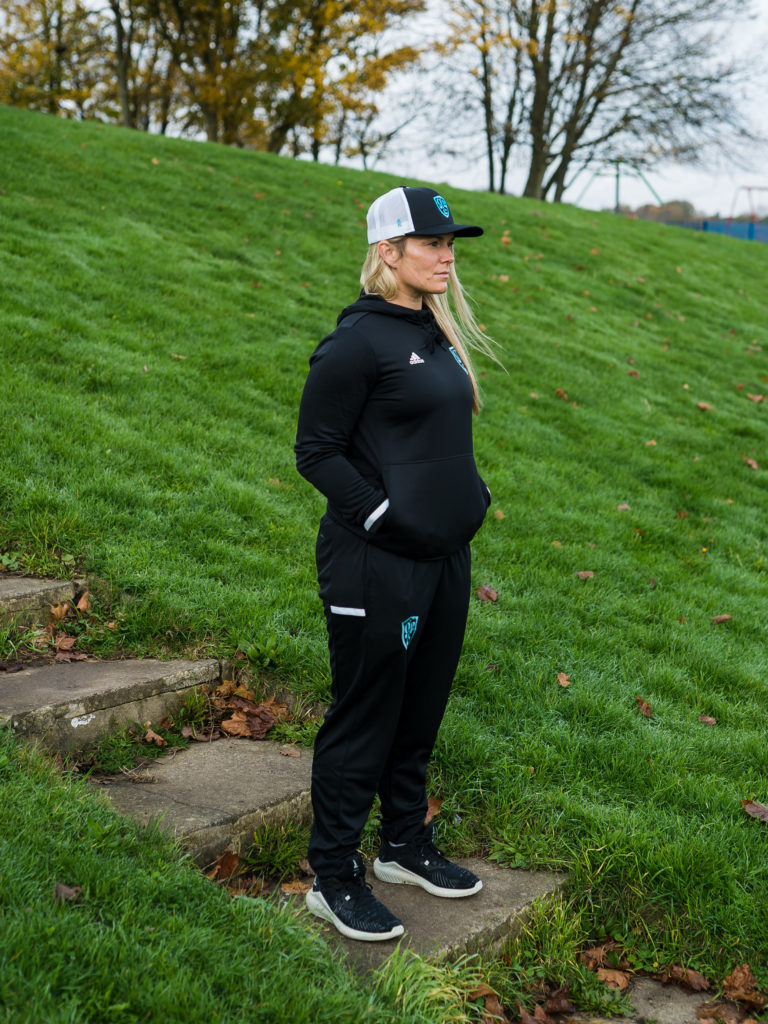
Reviews of Girls Rugby Club
“Just to say a massive thank you to you and your team. My daughter has come home beaming. She even said if there were spaces left next weekend, she would have paid out of her own money to do it all again. I thought the players were a credit to your organization. Well done and we hope to see you soon.”
“My daughter had a blast and learnt so much at the camp. When asked “would you recommend to a friend?” she responded emphatically “yes, absolutely!”. Everything she said was enormously positive – thank you!”
Here at Rex Club, we’re really excited to have had the chance to sit down with Rachael to discuss the Girls Rugby Club, and the amazing growth happening in women’s sport on a wider scope. We will continue to follow the progress of the club, and hope to help any young players out there fuel their passion for sport.

